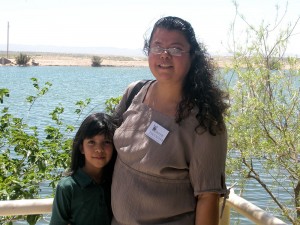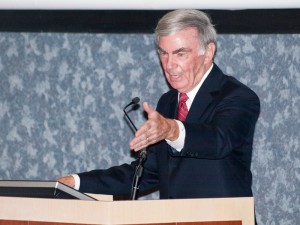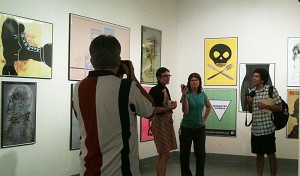The faces behind the voices of radio disc jockeys
|
EL PASO – While you listen to your favorite song during your commute to work, there is a small team of radio disc jockeys pulling levers, pushing buttons, flicking switches and orchestrating the entire three-four minute performance. This is an inside look into the lives of three DJs and the DJ booth. Sarge Preston, Jojo Garcia and Victor Cruz are three local radio DJs at KFOX 92.3. The three DJs have a combined 91 years of experience. Their time spent on air is a very small part of their daily job responsibilities but it is also the favorite part of their workday.



